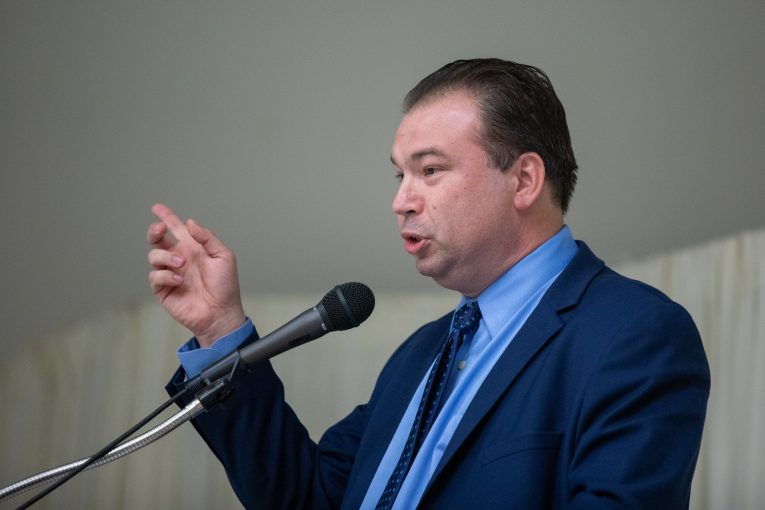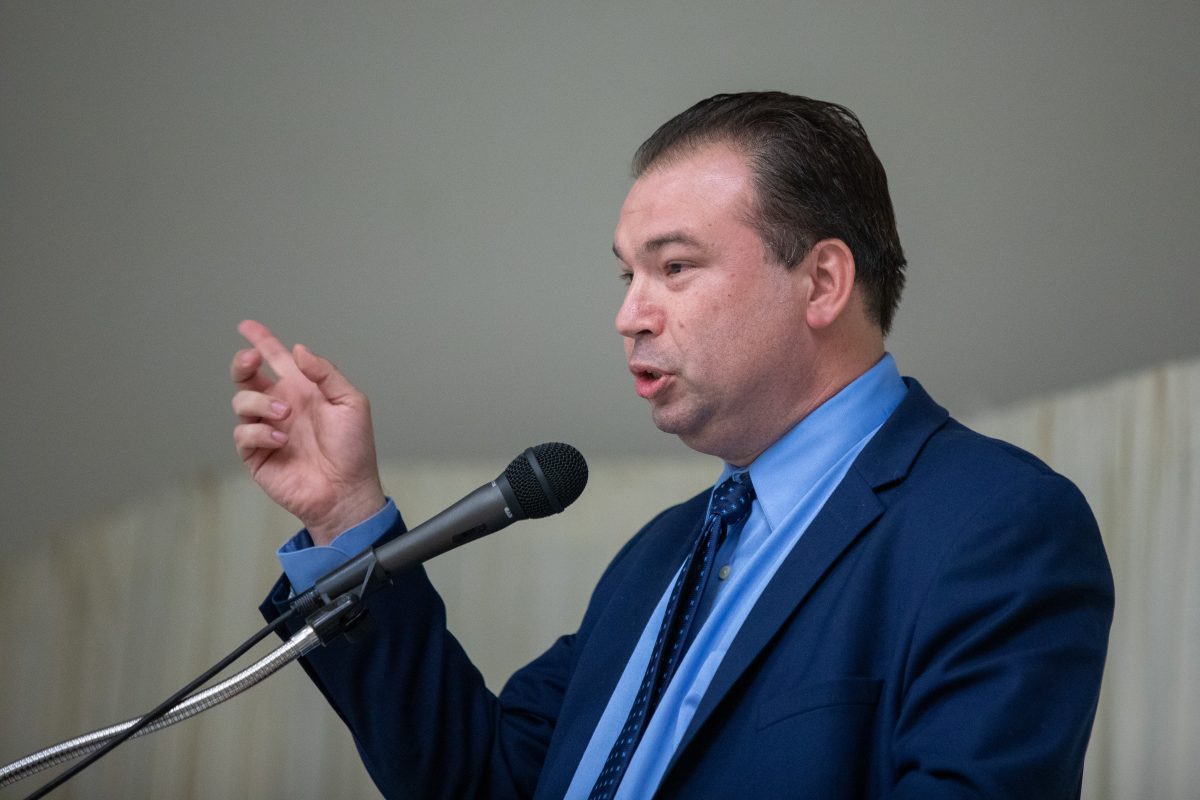

By Jeffrey Deskovic
“Looking back” will feature reprints of articles that Jeff previously wrote while a columnist at The Westchester Guardian, which encompass topics that are applicable here in CA as well as across the country and not simply applicable to NY.
Last week in The Guardian, I described Frank Sterling’s wrongful conviction and exoneration after serving nineteen years for a murder committed by a man named Mark Christie. Frank was wrongfully convicted based on a coerced, false confession obtained while he was hypnotized during a twelve- hour interrogation. Christie was free to murder again and took the life of four-year-old Kali Ann Poulton. She would be alive today but for irresponsible police, prosecutors and judges who failed to do their jobs.
Frank and I met as prisoners back in 1993 at Elmira Correctional Facility where we both attended a college program. He asked me, almost out of the blue, if I was familiar with legal work. I told him I was familiar with the law, but only as it pertained to my case. He said he was primarily concerned with a Fifth Amendment issue and showed me his legal brief.
The issue was similar to one in my case. Both convictions were based on false confessions. Shortly after meeting Frank I was sold on his innocence—a rare thing in prison. I told him I was innocent, too, and gave him a legal brief in my case. We believed in each other, and we supported each other emotionally and morally throughout the next decade and a half.
We met approximately every six weeks to discuss possible ways to prove our innocence and regain our precious freedom. We talked about methods used in recent exonerations—whether they might be helpful to our cases; the people involved; to whom we could write; etc. Frequently, I brought the wrongful conviction magazines, Justice Denied and Innocence Denied, to our meetings. We shared whatever scraps of exoneration news we could get our hands on. We kept up with case law developments that might have retroactive application to our cases. We commiserated about our failed attempts at appeal. I helped him in certain subjects in our classes, and he tutored me in the computer repair vocational shop. As Frank said during a recent media interview, we could not have made it without one another.
When The Innocence Project wrote and informed me they were taking my case, I rushed to give Frank the news. He was already represented by them. I wanted to be sure it was real, that they would really take my case, not merely evaluate it.
I was cleared before Frank, but never forgot him. On the day of my release, I spoke about Frank to the many television, print, and radio reporters present. I told them Monroe County prosecutors were opposing Frank’s attempts to get DNA testing done on key evidence used against him. I said it again at a press conference following my formal exoneration. Tragically, the media paid no attention to my statements. Monroe County’s errant prosecutors were never put under the glare of the klieg lights.
I spoke of Frank’s case in my lectures, and I wrote about it back in 2008. We talked periodically by telephone and stayed in touch by letters. Frank was glad when I was finally cleared, but worried about his ability to continue without me. No one looks after the innocent in prison. But I remained with him in spirit. It bothered me to be free while he was still locked up. “Don’t let it bother you,” he told me, “my day will come. I’m going to come home.”
The telephone call from The Innocence Project telling me Frank had been cleared came as a shock. Part of me remained in prison while Frank was not free. suddenly, I was in a state of ecstasy: our joint dream of exoneration had finally come true.
I missed the train leaving from Croton Harmon to Rochester by five minutes, and could not afford to fly, so I drove over six hours to be with Frank. I was not going to miss his moment of exoneration. I drove half the way to Rochester, and stayed over at David Kaczynski’s house. Dave is the executive director of New Yorkers for Alternatives to the Death Penalty. His brother, Ted Kaczynski, was the Unabomber.
The next day, I reached Rochester and met Freddie Peacock outside the courtroom. He had been exonerated a few months beforehand for a rape he did not commit. I saw Steven Barnes for the second time. He had been cleared a year earlier of a murder in nearby Buffalo he did not commit. He served twenty years in prison. Many people were gathered outside the courtroom for Frank’s exoneration, including his trial lawyer. I was surprised to learn many of them had read my article about Frank’s case published years earlier.
Inside, the atmosphere was electric with anticipation. Frank was in the bullpen worried something would go wrong. It didn’t. Frank was cleared. I hugged him and we said to each other repeatedly, “We made it! We made it!” Moments later, he made a dramatic phone call to his mother: “Mom, I’m coming home.”
A crowd of people celebrated Frank’s freedom at a luncheon in his honor and went home afterward. I stayed around during his first days of freedom. The first night as we walked outside, he asked, “Jeff, is this real?”
The next day, his first mission was to get a haircut at a familiar barbershop. We then went shopping with many friends and supported donations to him. He purchased several blue items because blue is a color forbidden to prisoners. I took him to a local diner where he once worked. Friends there hugged him. I then took him to see places he had not seen in nearly twenty years. I bought him his first real ice cream, and later a slice of pizza. We paid surprise visits to old friends. I put him on the telephone with Scott Christianson, who wrote about Frank’s case in his book Innocent: Inside Wrongful Conviction Cases. Frank had never met him or spoken with him.
Finally, I drove Frank to see his father’s grave. His beloved father died while Frank spent nineteen years in prison for a crime he did not commit. It was a very emotional moment.
– Jeff Deskovic spent sixteen years in prison for a murder and rape he did not commit. He writes exclusively about wrongful conviction and prosecutorial misconduct.
“Jeffrey Deskovic, Esq, MA, is an internationally recognized wrongful conviction expert and founder of The Jeffrey Deskovic Foundation for Justice, which has freed 9 wrongfully convicted people and helped pass 3 laws aimed at preventing wrongful conviction. Jeff is an advisory board member of It Could Happen To You, which has chapters in CA, NY, and PA. He serves on the Global Advisory Council for Restorative Justice International, and is a sometimes co-host and co-producer of the show, “360 Degrees of Success.” Jeff was exonerated after 16 years in prison-from age 17-32- before DNA exonerated him and identified the actual perpetrator. A short documentary about his life is entitled “Conviction“, and episode 1 of his story in Virtual Reality is called, “Once Upon A Time In Peekskill“. Jeff has a Masters Degree from the John Jay College of Criminal Justice, with his thesis written on wrongful conviction causes and reforms needed to address them, and a law degree from the Elisabeth Haub School of Law at Pace University. Jeff is now a practicing attorney.





